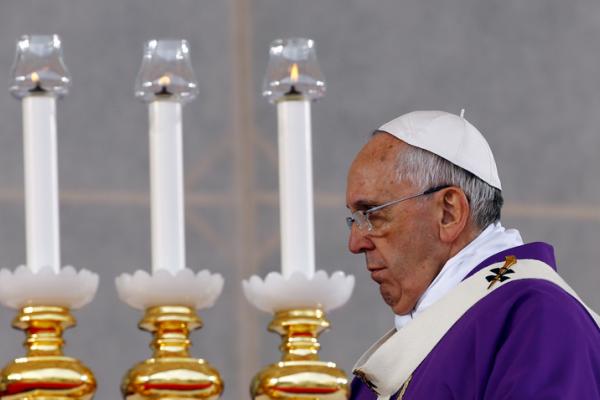On March 20, Pope Francis issued his most forceful call yet to abolish the death penalty, one that seemed to go even beyond current church teaching. Francis’ latest moves could signal a further development in Catholic teaching against capital punishment — and in his relationship with some U.S. Catholics.
“Today the death penalty is inadmissible, no matter how serious the crime committed,” Francis wrote in a detailed argument to the president of the International Commission against the Death Penalty, based in Madrid.
The pope said capital punishment “contradicts God’s plan for man and society” and “does not render justice to the victims, but rather fosters vengeance.”
Francis added that executing a prisoner can no longer be justified by a society’s need to defend itself. He addressed two issues prominent in the American context: He declared that the death penalty “loses all legitimacy” because of the possibility of judicial error, and he said “there is no humane way of killing another person.”
Several recent botched executions have given anti-death penalty advocates more ammunition for their arguments.
In his letter, the pontiff also repeated his view, expressed last October, that keeping inmates isolated in maximum security prisons is “a form of torture” and that life sentences are “a hidden death penalty” that should be abolished along with capital punishment.
These are unusually categorical and expansive statements, and they come on the heels of a campaign to abolish the death penalty worldwide, which gained Vatican support at a United Nations meeting in Geneva earlier this month.
In addition, four national Catholic journals from across the ideological spectrum — the National Catholic Reporter; America; Our Sunday Visitor; and the National Catholic Register — earlier this month published an unprecedented joint editorial calling for an end to the death penalty in the U.S. in the wake of those botched executions and increasing doubts about the fairness of the justice system.
Read the Full Article

